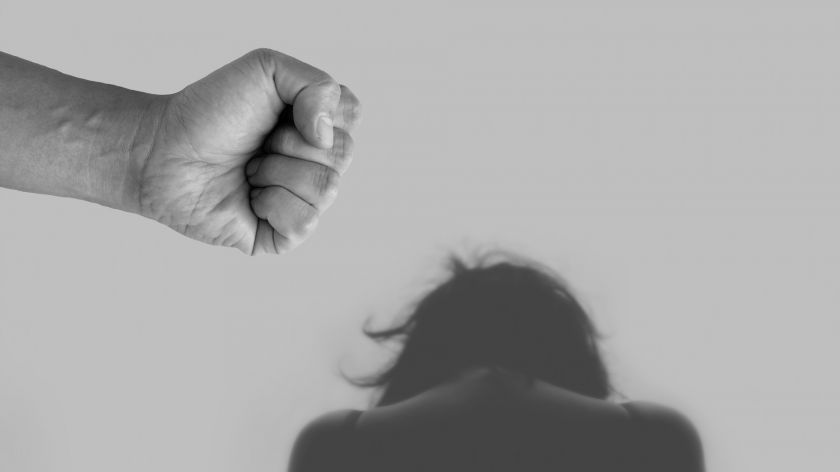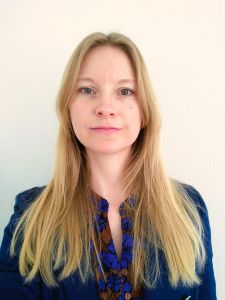Radboudumc researcher developed platform for female victims of domestic violence
-
 Afbeelding ter illustratie. Foto via Pixabay
Afbeelding ter illustratie. Foto via Pixabay
Shame; fear; feeling unsafe; not knowing where to go. Women with abusive partners often do not know how to escape their situation. Radboudumc researcher Nicole van Gelder (33) is there to help.
Suppose you’re a woman who is either physically or mentally abused by your partner, and you are looking for help. Where can you go? Nicole van Gelder created an anonymous website called Safe; Hundreds of mistreated women have already reported in.
‘There is a huge barrier to finding help’, according to Nicole van Gelder, researcher at Radboudumc. ‘A lot of women find it difficult to judge their situation, especially when the violence is mental (manipulation, shouting, name-calling, eds.) and not (yet) physical.’

That had to change, the researcher felt, and so she launched Safe in 2019: an online platform where women can ask for help and search for information anonymously, at a safe time of their choosing. Van Gelder finished her PhD track based on research into the platform earlier this month.
Suppose you’re a woman in a violent situation, and after some googling, you end up at Safe. What do you see?
‘First, you will need to make an anonymous account and log in, after which you will end up in an online environment with various modules. There’s an orange ‘escape button’ you can click if you need to leave the page quickly in an unsafe situation, and there is also information on how to delete your browser history.’
‘The modules are filled with information, clips from experience experts, and exercises you can do yourself. For example, one of the modules concerns the different kinds of partner violence. If you’re not sure what you’re dealing with, that is one way to find out.’
‘There are so many different agencies that women tend to miss the forest for the trees’
‘Another module is about the different types of help and organisations. It illustrates what certain kinds of help look like, but you can also select the type of help you’re looking for -such as legal or psychological help- and in what province. There are so many different agencies that women tend to miss the forest for the trees; this can help them. There is also a forum, where women can talk to other women. The forum is moderated by me and several colleagues, the community managers. They can also be messaged directly.’
What are the benefits of this contact?
‘It makes women feel supported and heard. But they also help each other, which is wonderful to see. The other day, someone said they were still with their partner because things had been going well for a while. There was no judgment, only trust and understanding. “You’re clinging to the relationship because there are still ‘good times’ sometimes”, according to one response. “Yes, that’s right. I admire the steps you’ve taken; I hope I can take them as well someday”, came the reply. And: “I believe in you”.’
‘Of course, we make sure that there are no crazy comments, but they honestly haven’t occurred.’
And this all happens anonymously?
‘Yes, and that was a conscious choice. A lot of women don’t seek out help because they’re afraid of their partner, for instance. But they also feel ashamed. Anonymity lowers the barrier to entry and allows women to stay in control. “I liked that they didn’t immediately make a whole file on me, or that the police came to visit”, one participant illustrated wonderfully.’
But is it a good thing that the victims remain anonymous? This way, there’s no way to tell who’s asking for help and who’s in danger.
‘That’s right; we have no information on participants, let alone where they live. But we always employ a safety protocol. So, suppose a woman sends out a message stating she’s in danger. What steps do we take to help? And what do we do if we lose contact?’
‘We noticed that women reported fewer anxiety symptoms after six months’
‘Fortunately, that hasn’t happened in the nearly five years we’ve done this. I think women can quickly tell that this is not a platform for immediate assistance. When you open the site, you get a popup that tells you to call 112 if you’re in immediate danger. That popup can be found in several places.’
You have done research on the site for several years. What are the results?
‘We’ve tracked victims for longer periods using surveys, and we’ve held interviews. In sum, these showed that Safe helped women in the areas of awareness, recognition, and support. We noticed that women reported fewer anxiety symptoms and less fear for their partners after six months.’
You might even say that this kind of online help is the future.
‘You could, but only when combined with ‘in-person help’. My research became even more relevant during the pandemic, because a lot of help had to be offered online, and there was increased attention paid to domestic violence. At first, there was a prejudice against online help; that it didn’t allow you to make a real connection; that you had to be able to look each other in the eye. But that turns out to not be the case. This platform is a good supplement to the existing ‘in-person help’; it is not and should not be a complete replacement.’
‘We’re continuing to develop it. The most vital information is now also available in English and Arabic’
Are there any conversations that stuck with you?
‘A little while ago, I was in contact with a woman with a bad home situation. I can’t share details, but it became clear that she had to leave. However, finding a new place proved incredibly difficult; it took a very long time, and she had had it. She messaged us increasingly, and we could feel the desperation.’
‘There was very little I could do, as I was not a caseworker; all I could do was refer her to others. But apparently, listening and offering advice proved to be sufficient. When she finally moved away, she sent me pictures of her new place and told me how happy she was with the help she received. Even though we never spoke or saw each other. I get emotional just thinking about it.’
What’s next?
‘The site will stay online; we’re continuing to develop it. The most vital information is now also available in English and Arabic. We want to do more, such as making the site smartphone-friendly. I hope we can get the necessary funding.’
An expanded version of this article was published earlier in De Gelderlander.
Translated by Jasper Pesch



